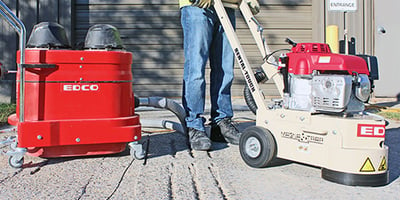As a small business owner in the equipment rental industry, optimizing efficiency is essential for...
Preparing Your Rental Equipment for Fall: Maintenance Tips and Tricks for Businesses
 As the season shifts to the cooler months of fall, it's crucial for equipment rental businesses to ensure that their fleet is well-maintained and ready for the different demands of the season. Proper maintenance not only extends the lifespan of the equipment but also maximizes its reliability and efficiency, ensuring customer satisfaction and repeat business.
As the season shifts to the cooler months of fall, it's crucial for equipment rental businesses to ensure that their fleet is well-maintained and ready for the different demands of the season. Proper maintenance not only extends the lifespan of the equipment but also maximizes its reliability and efficiency, ensuring customer satisfaction and repeat business.
Here are essential maintenance tips and tricks tailored for businesses managing rental equipment.
1) Conduct Thorough Inspections and Cleaning
Before the fall season kicks in, inspecting all equipment for any wear or damage incurred during the busy summer is vital. For each piece of equipment:
- Clean thoroughly: Remove all dirt, debris, and grime from machines. Pay special attention to moving parts and areas prone to buildup.
- Inspect for damage: Look for signs of wear or damage on critical components like engines, cables, and belts. Make sure that all safety features are fully functional.
2) Perform Essential Fluid and Filter Changes
Regular changes of oils and fluids are critical in preventing breakdowns and ensuring that machines operate smoothly.Engine oil and hydraulic fluids:
- Check and replace these fluids to ensure optimal performance and protect internal components from wear.
Air and fuel filters: Clean or replace filters to prevent clogging and ensure efficient operation. This is particularly important for equipment that operates in dusty or dirty conditions.
3) Prepare Equipment Specific to Fall Demands
Some equipment sees higher demand in fall, such as leaf blowers, chainsaws, and stump grinders. Preparing these for the season will ensure they’re ready to perform when rented out.
- Leaf blowers: Check for operational efficiency and clean air intake areas.
- Chainsaws and stump grinders: Sharpen blades and chains, and ensure that all safety guards are in place.
Cold weather can be harsh on batteries and electrical systems. To avoid start-up issues:
- Charge and test batteries: Ensure batteries are fully charged and test them to avoid power failures.
- Inspect electrical systems: Check wiring and connections for corrosion or damage, and ensure all connections are secure.
5. Implement a Fuel Management Strategy
Proper fuel management is essential to avoid issues like fuel gelling in colder weather.
- Use fuel stabilizers: Adding stabilizers to fuel can help prevent degradation, especially in equipment that might not be used frequently.
- Educate customers on proper fuel use: Provide guidelines on how to handle fuel in colder temperatures, which can be beneficial for equipment performance and longevity.
6) Store Equipment Appropriately
Proper storage solutions can protect equipment from the elements and prevent unnecessary wear.
- Indoor storage: Whenever possible, store equipment indoors to protect it from severe weather.
- Properly cover equipment: For equipment that must be stored outdoors, use quality covers to shield it from moisture and freezing conditions.
7) Keep Documentation Updated
Maintain detailed records of maintenance schedules, repairs, and inspections. This documentation is crucial for:
- Tracking maintenance history: Helps in scheduling future maintenance and inspections.
- Warranty claims: Ensures that you have the necessary documentation to support warranty claims should they arise.
By following these tips, rental businesses can ensure their equipment remains in peak condition, minimizing downtime and repair costs while maximizing reliability and customer satisfaction. This proactive approach not only enhances the longevity of your fleet but also reinforces your reputation as a dependable rental provider.


